On Sunday, Armen Sarkissian announced his resignation as the fourth president of the Republic of Armenia.
A controversial figure – much accepted outside of Armenia and lacking popularity within the Republic, Sarkissian signaled a new wave of a deepening political and psychological crisis in Armenia and within the Armenian Diaspora.
Different political analysts and activists in Armenia and Diaspora have already managed to put forward different theories and explanations of Sarkissian’s resignation.
Some say that Sarkissian could not afford himself being a head of a state that would [legally] lead a collective CSTO invasion into Ukraine at the upcoming Russia-Ukraine war.
Others say he would initiate a pan-Armenian corporation or a Diaspora-led organisation.
Also there are people who say that he will simply be back to the United Kingdom.
Under any circumstances, in his resignation text, Sarkissian warned Armenians of an upcoming big hazard that the country will face very soon.
History speaks eloquently though. This is Sarkissian’s second resignation from a high-level post: he resigned as a prime minister of Armenia 25 years ago, in 1997, after which Armenia ended up into a political crisis which has never left Armenia since.
The 30-year period after the collapse of the Soviet Union proved to be insufficient for the Armenian nation to build up institutions instead of individuals.
It seemed that the Armenian nation, which regained its independence in 1991 (having lost it in 1920), would team up and work hard. But see, the political virus of saviour-messiah syndrome has been rooted very deep among the nation of tens of millennia.
A nation that once defeated the Roman empire and competed with the British East India company, has now been sunk into deep apathy and utter hopelessness after the 2020 Turkish-Azeri aggression against Armenia and Artsakh (Nagorno-Karabakh).
It is now clear that the loss of the beautiful capital Ani and the fall of the Bagratuni (Bagratid) kingdom a millennia ago, in 1045, played a major role in developing that “saviour-messiah” syndrome within the Armenian nation.
First, losing the independent kingdom, then losing ministries – then the political elite of the Armenians, the nation started looking for a solution to its problems outside of itself.
Notable Armenians of the late Middle Ages would go to this or that European royal palaces seeking for military help from a “saviour-messiah” foreign ruler who would come to the Armenian Highlands and fight the oppressors – the notorious Ottoman Empire.
It did not take the nation to anywhere good and it was not until 1918 when the Armenian nation, surviving the first major genocide of the 20th century, teamed up and regained its independence.
The very 1918 events, which are called May heroics, are an excellent vindication of an adamant success: once a nation relies on itself, succeeds – this is a political axiom that the majority of Armenians seem to have forgotten now.
On a political level, most Armenians are now longing for a “saviour-messiah” who will come and save the country from collapse.
The most common excuse is “I do not trust this guy, that guy, this initiative, that movement” which is fatal and sucks the energy of the nation from within.
READ MORE: Armenia’s colours light up Greece to commemorate 30th anniversary of Athens-Yerevan diplomatic ties.
There is no magic stick in politics, rather the latter loves everyday hard work. A nation becomes independent, keeps its independence and sovereignty once its people self-determine and self organise – they believe in themselves and their collective power.
1918 was one example, 1990s – the first Artsakh War, is another example.
In business terms, it is like you pitch your right to self-determination, sovereignty, independence and prosperity to the others in the global business club.
If you show consistency, strong team-up record and “rely-only-on-yourself” philosophy, you are then accepted into the global club.
This new 2022 is full of challenges but offers tons of opportunities for the global Armenian nation to stage a remarkable comeback and strengthen its place in the aforementioned club.
Armenians’ forefather Hayk did install that mentality of independence, self-determination, and sovereignty into the Armenian people several millennia ago.
Now is the perfect time to show forefather Hayk that the nation has learnt the lesson.
Armenians, stop bringing up excuses for not working hard for the homeland and the nation.
No outsider is going to work for Armenia unless Armenians work first and hard.
Armenians, stop searching for a saviour-messiah, team up and work hard instead!
Vahram Ayvazyan is the founder of the Armenian Network State. He is an International Relations and Genocide scholar, startup founder and a Climate Reality Leader, personally trained by former US vice president Al Gore.

